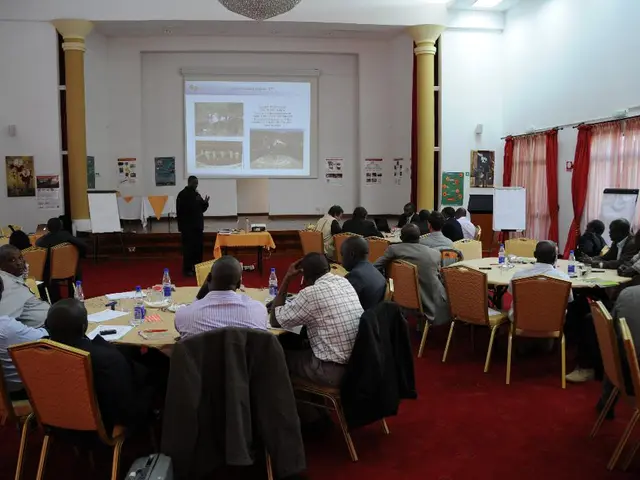Financial Liberation Insights: Essential Takeaways from Rich Dad Poor Dad
Breaking free from the financial rat race demands a shift in mindset and a new approach to money. In "Rich Dad Poor Dad," Robert Kiyosaki shares lessons learned from two "dads" – one wealthy, one poor – offering insight into the keys to financial independence. Let's explore the principles for escaping the rat race and building lasting wealth.
Think Differently: Redefine Wealth
Traditional wealth is often viewed through the lens of possessions and income, but true wealth lies in harnessing the freedom to maintain your lifestyle without work. With passive income, your money works for you. For Elon Musk, this means living millions of lifetimes with an average American salary. Most people, however, struggle to save for retirement. It's all about the measure: freedom is the true mark of wealth.
Understand the Rat Race Trap
The cycle of working hard for money only to spend it on bills and debts is the "rat race." Fear and greed keep people trapped, focusing on paycheck dependency rather than long-term wealth. Education is key here – financial literacy provides the tools to build sources of passive income through investments, breaking the cycle that binds you to a paycheck.
Financial Literacy 101: Assets vs. Liabilities
Kiyosaki's most essential lesson is the difference between assets and liabilities. While most people view their homes as assets, they often forget about the ongoing expenses that drain their money. Real assets generate income, such as rental properties, stocks, or businesses. Build wealth, not consume it – invest your money in assets to enjoy the benefits of cash flow.
Ditch Traditional Education: Build Your Own Financial Education
Conventional education fails to provide the financial know-how needed to manage, invest, and grow wealth. The gap in education leaves many reliant on their jobs for income. To escape the rat race, focus on building financial literacy by studying investing, taxes, and cash flow management.
Fight Fear and Greed: Recognize Your Emotions and Adjust
Fear and greed drive people into the rat race – fear of financial insecurity and greed for material possessions. To break free, cautiously assess your desires and keep your focus on long-term investments for future security.
Create a Cash-Flow-Centered Mindset
The wealthy don't work for money; they make money work for them. By focusing on cash flow, you can achieve greater wealth beyond a high salary. Build passive income streams that don't require daily attention – investments in real estate, stocks, or businesses can provide cash flow without demanding constant effort.
Master Financial Statements: Income, Balance, and More
Understanding financial statements helps make informed decisions and minimize liabilities. Your income statement reflects money earned and spent, while the balance sheet shows assets and liabilities. The wealthy use these statements to prioritize investments, reduce debts, and maintain wealth.
Work Smarter, Not Harder: Entrepreneurship and Business Ownership
Employment offers a temporary income stream; entrepreneurship presents opportunities to create wealth through business ownership and investments. Whether it's through side hustles or small businesses, focus on building and growing assets that generate cash flow.
Smart Tax Strategies: Keep More of Your Money
The wealthy understand the tax code and take advantage of deductions and loopholes to reduce their tax burdens legally. Through investments in assets or businesses, they minimize tax exposure and maximize cash flow.
Building Generational Wealth: Plan beyond Your Lifetime
Think long-term, create assets that grow across generations, and educate your family on financial literacy to preserve wealth for future generations.
Continuous Education and Adaptation: Stay Informed and Adapt
Embrace lifelong learning. Keep informed on trends, educate yourself, and be willing to evolve and adapt in a rapidly changing financial world.
Take Action: Embrace Risks and Mistakes
To achieve financial freedom, it's essential to take action. Investments and managed risks help build a foundation for wealth over time. Start small, learn the ropes, and scale up as you gain experience.
In conclusion, armed with this knowledge and the right perspective, you can escape the rat race and embrace financial freedom by understanding financial literacy, wise investments, and a mentality geared toward long-term wealth building. Achieving prosperity isn't just for the privileged – the tips in "Rich Dad Poor Dad" offer a path to financial freedom for anyone willing to learn and act upon them.
- Wealth is not merely possessions or income, but the freedom to maintain one's lifestyle without constant work, achieved through passive income sources.
- The financial rat race is a cycle of working hard for money, only to spend it on bills and debts, with fear and greed keeping people trapped and reliant on paychecks.
- A vital key to escaping the rat race is financial literacy, which provides the tools to build sources of passive income through investments, enabling one to break the cycle and enjoy the benefits of cash flow.
- Robert Kiyosaki's "Rich Dad Poor Dad" emphasizes the difference between assets and liabilities: while homes and other possessions can be liabilities because of ongoing expenses, real assets generate income and include rental properties, stocks, or businesses.
- To break free from traditional education's shortcomings in financial know-how, focus on building financial literacy by studying investing, taxes, and cash flow management.
- Emotions such as fear and greed can drive people into the rat race; to break free, recognize your emotions and prioritize long-term investments for future security.
- A cash-flow-centered mindset allows the wealthy to create wealth passively, focusing on building passive income streams through investments in real estate, stocks, or businesses.
- Understanding financial statements, including the income statement and balance sheet, helps make informed decisions and minimize liabilities, enabling one to prioritize investments, reduce debts, and maintain wealth.
- Entrepreneurship and business ownership offer opportunities to create wealth through owning businesses and investments, offering a path to financial freedom beyond a high salary.
- Smart tax strategies and legal tax optimizations can help reduce tax burdens and maximize cash flow, enabling you to keep more of your money and enjoy greater financial freedom.
- Building generational wealth involves planning beyond your lifetime, creating assets that grow across generations, and educating your family on financial literacy to preserve wealth for future generations.
- Continuous learning, staying informed, and adapting to a rapidly changing financial world is crucial for maintaining a sound financial mindset and achieving long-term financial freedom.
- Action is essential to achieving financial independence; start small, learn the ropes, and scale up as you gain experience, embracing managed risks and using investments as a foundation for lasting wealth over time.







